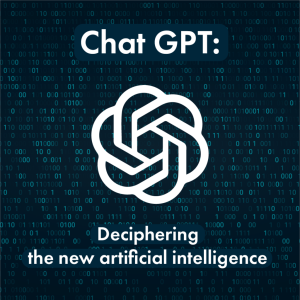Managing data privacy is a critical aspect for any AI technology, especially for free online chatgpt, which interacts with a wide array of user inputs. Ensuring the confidentiality, integrity, and availability of user data while maintaining transparency and user control are paramount concerns.
Data Collection Policies
Transparency
ChatGPT adheres to strict data collection policies that emphasize transparency. Users have clear information regarding what data the system collects from their interactions. This includes text inputs, usage patterns, and preference settings.
Consent
Users must provide explicit consent for the collection and use of their data. ChatGPT ensures that users understand the scope of data collection and its purpose before they start engaging with the system.
Data Use and Processing
Purpose Limitation
ChatGPT processes user data solely for the purpose of improving interaction quality and developing better understanding capabilities. The system uses advanced algorithms to analyze text inputs and generate responses that are relevant and contextually appropriate.
Data Minimization
The principle of data minimization plays a crucial role. ChatGPT collects only the data necessary for fulfilling its intended functions. This approach limits the risk of unnecessary data exposure.
Data Security Measures
Encryption
ChatGPT employs state-of-the-art encryption methods to protect data during transmission and at rest. This ensures that unauthorized parties cannot access sensitive information.
Access Control
Strict access control measures are in place to ensure that only authorized personnel can access the data for legitimate purposes. This minimizes the risk of data breaches and misuse.
User Control and Rights
Data Access and Portability
Users have the right to access their data and receive it in a structured, commonly used format. This empowers users to maintain control over their information.
Data Deletion
Upon request, ChatGPT facilitates the complete deletion of user data from its servers. This includes all backups and logs, ensuring that users have the final say over their digital footprint.
Updates and Notifications
ChatGPT commits to promptly notifying users of any significant changes to its data privacy practices. This includes updates to data collection, processing, and security measures.

Challenges and Limitations
Despite rigorous data privacy practices, challenges such as evolving regulatory landscapes and sophisticated cyber threats pose ongoing risks. ChatGPT continuously invests in enhancing its privacy and security frameworks to address these challenges effectively.
- Regulatory Compliance: ChatGPT ensures compliance with global data protection regulations, adapting to changes and updates in legal requirements.
- Cybersecurity Measures: The system employs advanced cybersecurity measures, including regular security audits, vulnerability assessments, and incident response protocols, to safeguard against threats.
Conclusion
ChatGPT's approach to managing data privacy centers around strong policies, user control, and continuous improvement. By prioritizing transparency, security, and user rights, ChatGPT aims to foster trust and ensure a secure, respectful interaction environment for all users.